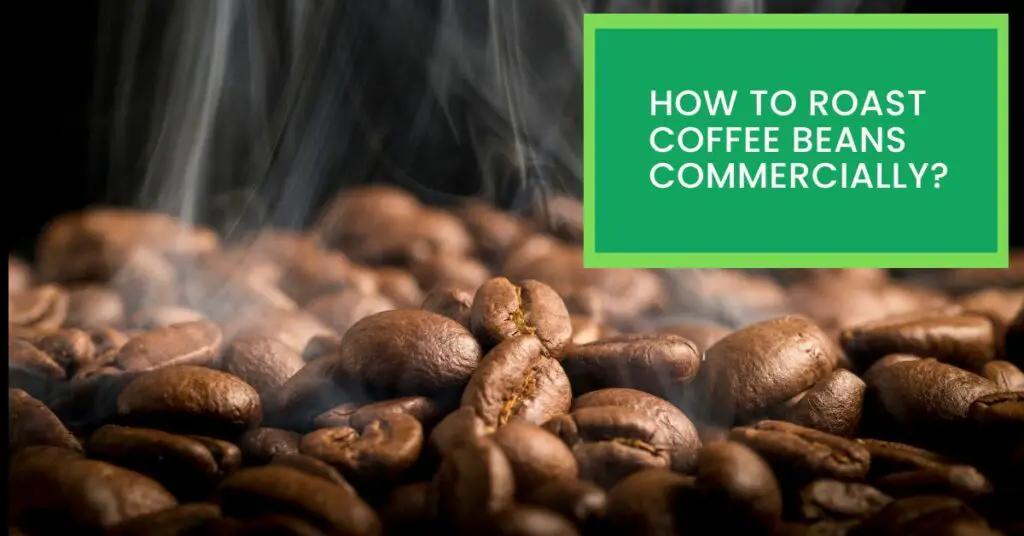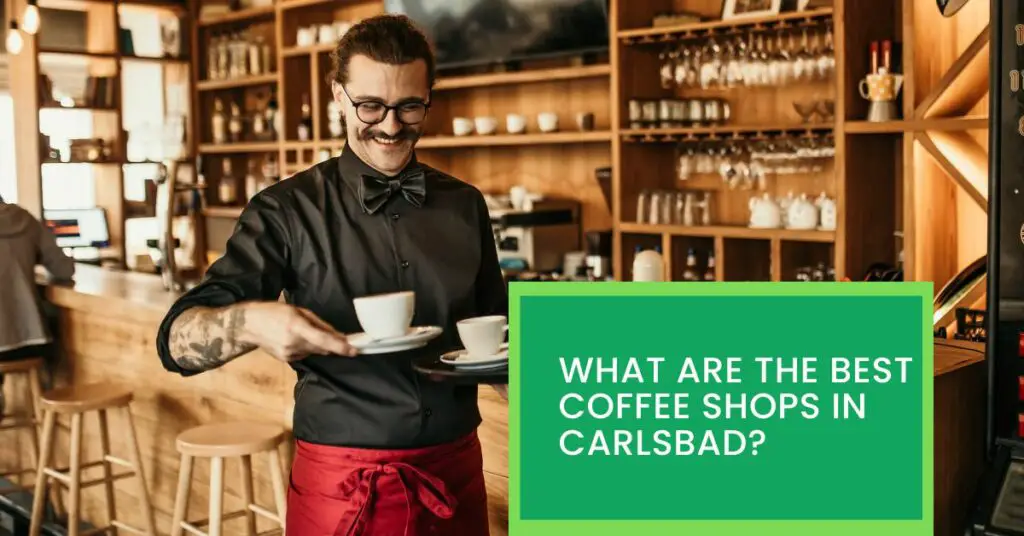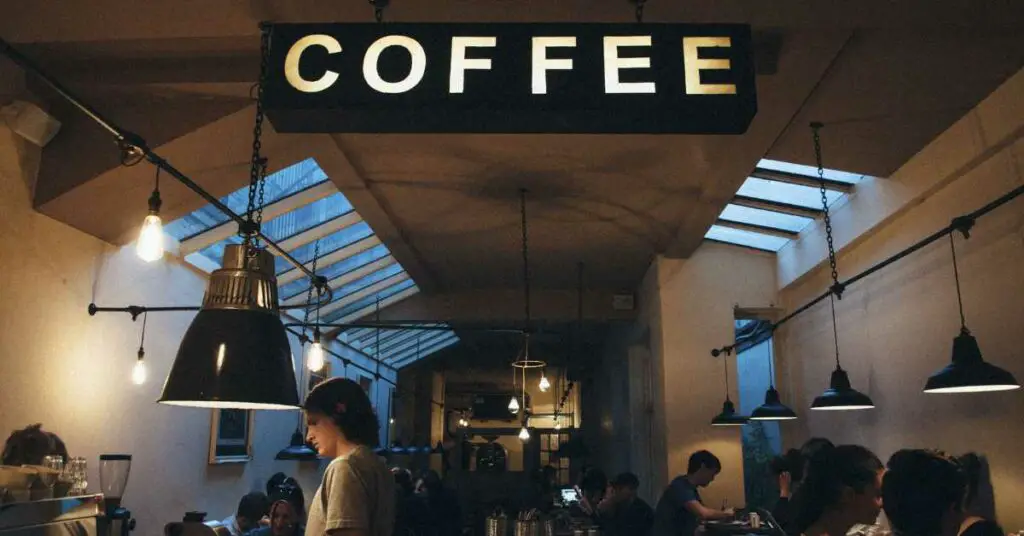Coffee beans are roasted to produce coffee.
Roasting coffee beans brings out the flavour and aroma of the coffee. It also determines the body and acidity of the coffee. Most new entrepreneurs wonder how to roast coffee beans commercially.
Raw coffee beans are first loaded into a mechanical device and then placed inside a large drum that rotates. Then, coffee beans are roasted at high temperatures, between 200 and 240 degrees Celsius. Finally, The beans are roasted in a drum at around 195 degrees. They are then taken out into a cooling tray, where they cool down.
In this article, we will discuss the things you need to know about commercial roasting coffee beans.
What is Roasting Coffee Beans For Commercial Use?
The process of roasting coffee beans is essential to making great-tasting coffee. Roasting brings out the natural flavours and aromas of the beans and also helps to remove any bitterness.
Commercial coffee roasters can roast large quantities of beans at once, making them ideal for businesses that need to produce a lot of coffee quickly.
The first step in roasting coffee beans is to heat them until they turn a light brown colour. The beans are then allowed to cool before they are ground and brewed. Commercial coffee roasters typically use large drum roasters, which can roast up to 60 pounds (27 kg) of beans at a time.
The roasted beans are then bagged and shipped to customers or stored until they are needed.
Roasting coffee beans is an important step in making great-tasting coffee, and commercial coffee roasters can help businesses to produce large quantities of coffee quickly and efficiently.
Machinery That Supports You in The Coffee Bean Roasting
Coffee roasting is a tricky business. Roasting coffee beans is an art, and it’s one that takes years to perfect.
There are a lot of variables that go into making the perfect cup of coffee, and each batch of beans is different. That’s why having the right machinery is so important.
The right machinery can make all the difference in the world when it comes to coffee roasting. It can help you roast beans more evenly, and it can give you more control over the roasting process. That means that you’ll be able to produce consistently great-tasting coffee, batch after batch.
Commercial Roasters:
1. The Diedrich IR-12 Coffee Roaster
If you’re looking for a top-of-the-line commercial coffee roaster, then you need to check out the Diedrich IR-12.
This machine is built for heavy-duty use and shows in its design and construction. The IR-12 is made from stainless steel and features a double-walled chamber. That means it’s built to last and can handle large batches of coffee beans.
The Diedrich IR-12 is a drum roaster, which means that it uses indirect heat to roast the beans. That indirect heat ensures that the beans are roasted evenly and gives you more control over the roasting process. You can adjust the temperature and the rate of rotation so you can customize the roast to your liking.
The Diedrich IR-12 Coffee Roaster is a top-of-the-line machine, and it’s priced accordingly. If you’re looking for a commercial roaster that can handle large batches of coffee beans, then this is the machine for you.
Other than this machine, The Probat UG22 Coffee Roaster, The Giesen W6A Coffee Roaster are some other examples of industrial coffee roasting machines.
The Different Types of Coffee Bean Roasts
- Light Roast – Light roasts are light brown in colour and have a light body with a mild flavour. The caffeine content is also relatively low.
- Medium Roast – Medium roasts are medium brown in colour and have a medium body with a balanced flavour. The caffeine content is also moderate.
- Dark Roast – Dark roasts are dark brown or black in colour and have a full body with a strong flavour. The caffeine content is also high.
- Extra Dark Roast – Extra dark roasts are very dark brown or black in colour and have a full body with a very strong flavour. The caffeine content is also very high.
Industrial Methods For Storing Your Roasted Coffee Beans
It’s no secret that coffee beans need to be stored properly in order to maintain their flavour and freshness. But what’s the best way to store coffee beans?
Depending on your needs, there are a few different methods that can be used to store coffee beans. Here are a few of the most popular storage methods:
1. Vacuum Sealing: Vacuum sealing is a great way to keep coffee beans fresh for a long period of time. This method involves sealing the beans in an airtight container, which removes all of the oxygen from the container. This helps to preserve the beans and keep them fresher for longer.
2. Nitrogen Flushing: Nitrogen flushing is another popular storage method that helps to keep coffee beans fresh. This method involves flushing nitrogen gas into the container with the beans. This displaces the oxygen in the container and creates an airtight seal.
These are just a few of coffee beans’ most popular storage methods. There are many other methods that can be used, but these are two of the most commonly used.
Frequently Asked Questions Related to Roasting Coffee Beans
1. How do you become a coffee bean roaster?
It’s not as easy as just roasting some coffee beans in your oven at home. You need training on how to roast, flavour, and grind coffee beans so that they produce the perfect cup of coffee.
That’s why most people who want to become coffee roasters take classes or attend workshops to learn all about the process.
2. Is coffee roasting difficult?
It’s relatively simple to roast coffee beans. The key is to get the roast just right so that the beans are evenly browned and have a deep, rich flavour. If you over-roast the beans, they’ll taste burnt and unpleasant. Under-roasting will leave them tasting sour and grassy.
Most home roasters use a stovetop popcorn popper or an oven to roast their coffee. It takes a little bit of practice to get it just right, but once you do, you’ll be able to create delicious roasted coffee at home with ease.
3. Is the coffee roasting business profitable?
On average, roasting coffee is profitable. The amount of profit depends on a variety of factors, including the cost of raw coffee beans, the cost of labour, and the price that you charge for your finished product.
The coffee roasting business is a competitive industry, so it’s important to find a niche market and focus on providing high-quality products. Roasters who can source the best quality beans and roast them to perfection will be more successful in the long run.











